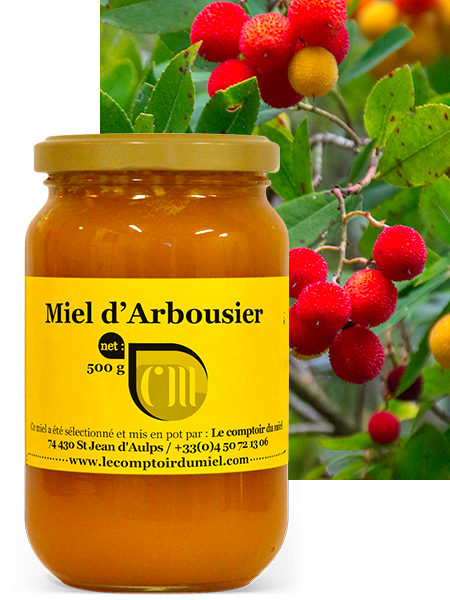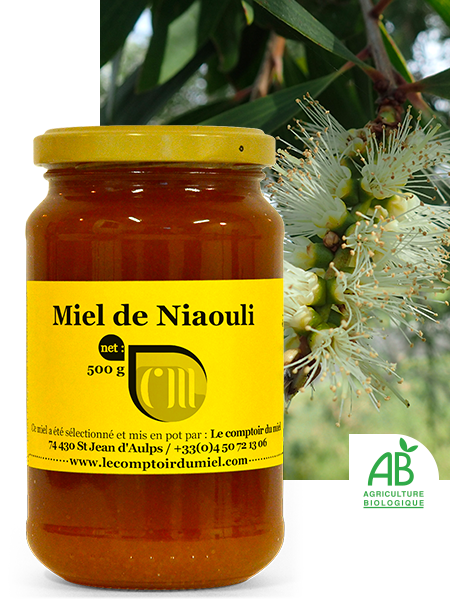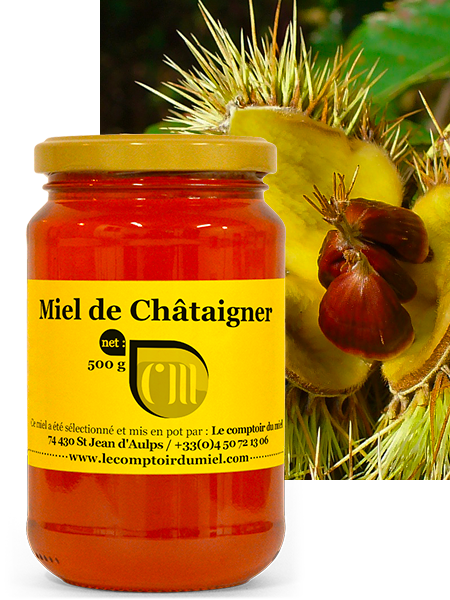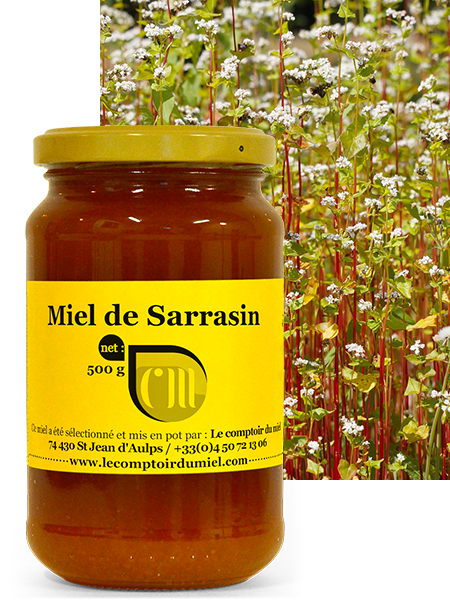It’s a culinary discovery that Comptoir du Miel strongly recommends you include in your honey selection!
For coffee, liqueurs and sauces, our finely-crystallized arbutus honey will linger on the palate for a long time, appealing to lovers of full-bodied, intense honey.
Ideally used as a culinary culinary complement, For example, it can be used in patisserie to enhance your tiramisu recipes, whose taste is in perfect harmony with our Arbousier honey.
Depending on the time of day, our monofloral arbutus honey will be a perfect gustatory ally that you can abuse: served as part of a traditional tasting, but also to surprise your guests, its surprising and powerful taste will undoubtedly make its effect! It’s sure to attract the attention of gourmets.
Where arbutus honey is harvested:
The arbutus is a fruit tree that is usually considered wild. Arbutus honey is harvested around the Mediterranean and, of course, in Corsica. It’s here, in this wilderness, that our beekeeper places his hives during the flowering season. The bees come to gather nectar-filled flowers, heralding the arrival of arbouse. Arbutus is sometimes likened to strawberries because of its bright orange-red color and oval shape. It’s also a berry very rich in vitamin C.
Arbutus blooms late, until the December frosts. Sometimes, surprisingly, even in the presence of arbutus! With rare exceptions, when autumn is very favorable for abundant flowering, the honey can be harvested before the frosts.
The taste and flavor of arbutus honey:
The Latin name for the strawberry tree comes from the Latin “unedo”, which is derived from “un ede, meaning ‘I only eat one’. which comes from” un ede, meaning “I only eat one”. This alone sums up its distinctive taste.
Indeed, it is known for its distinctive, complex taste. The organoleptic characteristics of this honey, including its color, smell and taste, depend on several factors: the harvesting region, climate and environmental conditions.
Generally speaking, however, arbutus honey is often described as having an intense, bitter flavor. It can have subtle notes of red fruit, caramel or even licorice. The color of arbutus honey can also vary from golden to darker brown, depending on the stage of crystallization.
Common arbutus contains 2.7% arbutin, methylarbutm and other hydroquinones, a bitter principle and tannins. It is therefore a honey with a pronounced bitterness. Much more so than chestnut honeywhose reputation for bitterness is well established. Arbutin is a powerful antiseptic for the urinary tract.
Our arbutus honey has a creamy consistency. It crystallizes faster than some other types of honey. Crystallization is a natural process that occurs when honey changes from a liquid to a semi-solid form. This does not affect the quality of the honey, and can even be appreciated by those who prefer a thicker texture.
To truly appreciate the taste of arbutus honey, it’s best to taste it raw, without excessive heating, as heat can alter its properties and flavor profile. Tasting arbutus honey can be a unique experience, thanks to its complex aromas and distinctive taste.
The benefits and virtues of arbutus honey :
In addition to its recognized vitamin C content, arbutus honey has powerful properties:
Research research carried out at the University of Vigo, Spain, has shown that arbutus honey is capable of inhibiting the proliferation of human colon adenocarcinoma tumor cells (HCT-116) and other metastatic cell lines,in vitro. Arbutus honey, simply added to colon cancer cells grown in the laboratory, halts their proliferation. Antitumor potential to be confirmed in in vivo models.
Honey treatment blocks the cell cycle by regulating certain genes (cyclin D1, CDK2, p27Kip…); it inhibits cell migration, reduces colony-forming capacity and induces apoptosis (programmed cell death) by modulating other key genes. Finally, the compound also suppresses the epidermal growth factor receptor and its signaling pathways, which play a key role in cell survival and proliferation processes, as well as in apoptosis and metastasis.
The cytotoxicity and antitumor effects of arbutus honey on colon cancer cell lines increased with the amount and duration of treatment. This led to other relevant results, such as the reduction of certain transcription factors, inhibition of the activity of certain enzymes, decreased mitochondrial respiration and glycolysis of tumor cells. However, none of these effects were observed in healthy cell lines. This natural product therefore appears to have a selective anticancer effect.
Did you know?
Arbutus honey is usually left over winter as food for the bees. This is one of the reasons why arbutus honey is not available every year.
Strawberrytree means strawberry tree because of the color and shape of its fruit.




Reviews
There are no reviews yet.